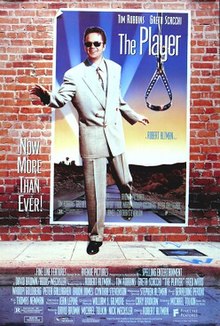
Robert Bernard Altman was an American film director, screenwriter, and producer. He was a five-time nominee of the Academy Award for Best Director and is considered an enduring figure from the New Hollywood era. His most famous directorial achievements include M*A*S*H (1970), McCabe & Mrs. Miller (1971), The Long Goodbye (1973), Nashville (1975), 3 Women (1977), The Player (1992), Short Cuts (1993), and Gosford Park (2001).

Broadcast News is a 1987 American romantic comedy-drama film written, produced and directed by James L. Brooks. The film concerns a virtuoso television news producer who has daily emotional breakdowns, a brilliant yet prickly reporter, and the latter's charismatic but far less seasoned rival. It also stars Robert Prosky, Lois Chiles, Joan Cusack, and Jack Nicholson.
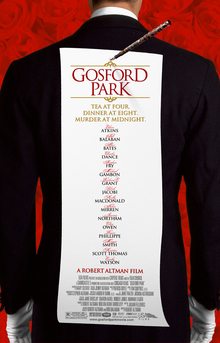
Gosford Park is a 2001 satirical black comedy mystery film directed by Robert Altman and written by Julian Fellowes. It was influenced by Jean Renoir's French classic La Règle du jeu.

The Color of Money is a 1986 American sports drama film directed by Martin Scorsese. It is the sequel to the 1961 film The Hustler, and stars Paul Newman reprising his role as "Fast Eddie" Felson, for which he won an Academy Award.
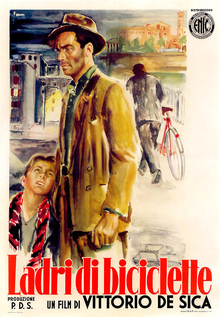
Bicycle Thieves, also known as The Bicycle Thief, is a 1948 Italian neorealist drama film directed by Vittorio De Sica. It follows the story of a poor father searching in post-World War II Rome for his stolen bicycle, without which he will lose the job which was to be the salvation of his young family.

Short Cuts is a 1993 American comedy-drama film, directed by Robert Altman. Filmed from a screenplay by Altman and Frank Barhydt, it is inspired by nine short stories and a poem by Raymond Carver. The film has a Los Angeles setting, which is substituted for the Pacific Northwest backdrop of Carver's stories. Short Cuts traces the actions of 22 principal characters, both in parallel and at occasional loose points of connection. The role of chance and luck is central to the film, and many of the stories concern death and infidelity.
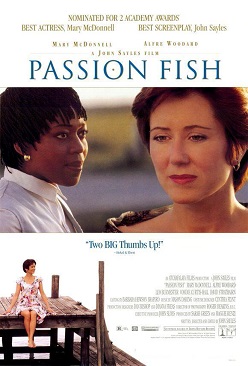
Passion Fish is a 1992 American drama film written and directed by John Sayles. The film stars Mary McDonnell, Alfre Woodard, Vondie Curtis-Hall, David Strathairn, Leo Burmester, and Angela Bassett. It tells the story of a soap opera star (McDonnell), who after getting paralyzed in a car accident, is forced to return to her family home and rely upon a series of nurses, forcing each of them to leave her employment until one shows up guaranteed to stay.

Mrs. Parker and the Vicious Circle is a 1994 American biographical drama film directed by Alan Rudolph from a screenplay written by Rudolph and Randy Sue Coburn. The film stars Jennifer Jason Leigh as writer Dorothy Parker and depicts the members of the Algonquin Round Table, a group of writers, actors and critics who met almost every weekday from 1919 to 1929 at Manhattan's Algonquin Hotel.
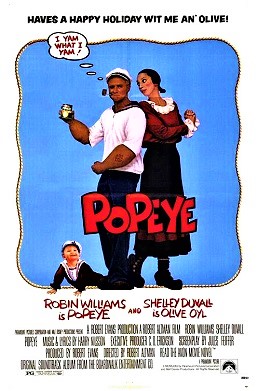
Popeye is a 1980 American musical comedy film directed by Robert Altman and produced by Paramount Pictures and Walt Disney Productions. It is based on E. C. Segar's Popeye comics character. The script was written by Jules Feiffer, and stars Robin Williams as Popeye the Sailor Man and Shelley Duvall as Olive Oyl. Its story follows Popeye's adventures as he arrives in the town of Sweethaven.

HealtH is a 1980 American ensemble comedy film, the fifteenth feature project from director Robert Altman. It stars Carol Burnett, Glenda Jackson, James Garner, Lauren Bacall, and Paul Dooley, and was written by Altman, Dooley and Frank Barhydt. The film's title is an acronym for "Happiness, Energy, and Longevity through Health".

West Side Story is a 1961 American musical romantic drama film directed by Robert Wise and Jerome Robbins, written by Ernest Lehman, and produced by Wise. The film is an adaptation of the 1957 Broadway musical of the same title, which in turn was inspired by Shakespeare's play Romeo and Juliet. It stars Natalie Wood, Richard Beymer, Russ Tamblyn, Rita Moreno, and George Chakiris, and was photographed by Daniel L. Fapp in Super Panavision 70. The music was composed by Leonard Bernstein, with lyrics by Stephen Sondheim.

Michael L. Tolkin is an American filmmaker and novelist. He has written numerous screenplays, including The Player (1992), which he adapted from his own 1988 novel of the same name, and for which he received the Edgar Award for Best Motion Picture Screenplay (1993) and was nominated for the Academy Award for Best Adapted Screenplay. He later wrote a follow-up to the novel, titled The Return of the Player, which was published in 2006.
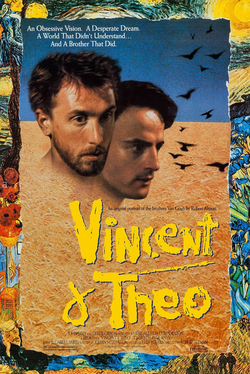
Vincent & Theo is a 1990 biographical drama film about the Dutch painter Vincent van Gogh (1853–1890) and his brother Theo (1857–1891), an art dealer. While Vincent van Gogh's artworks are now famous, he was essentially unrecognized in his lifetime, and survived on his brother's charity. The film was directed by Robert Altman, and starred Tim Roth and Paul Rhys in the title roles.
The 58th New York Film Critics Circle Awards honored the best filmmaking of 1992. The winners were announced on 17 December 1992 and the awards were given on 17 January 1993.

One of the Hollywood Ten is a 2000 Spanish-British bio-picture. The film was written and directed by Karl Francis.
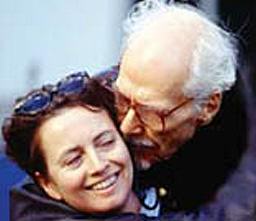
Geraldine "Geri" Peroni was an American film editor who was best known for working with Robert Altman. She received a nomination for the Academy Award for Best Film Editing for her work on Altman's 1992 film, The Player.
Dylan Tichenor, A.C.E. is an American film editor. He is the recipient of several accolades, including a Critics' Choice Movie Award, a Hollywood Film Award and a Satellite Award, and has been nominated for a Primetime Emmy Award, two Academy Awards, two BAFTA Awards and four Eddie Awards.

M*A*S*H is a 1970 American black comedy war film directed by Robert Altman and written by Ring Lardner Jr., based on Richard Hooker's 1968 novel MASH: A Novel About Three Army Doctors. The picture is the only theatrically released feature film in the M*A*S*H franchise.
The 27th National Society of Film Critics Awards, given on 3 January 1993, honored the best filmmaking of 1992.

Free Guy is a 2021 American action comedy film directed and produced by Shawn Levy from a screenplay by Matt Lieberman and Zak Penn, and a story by Lieberman. The film stars Ryan Reynolds, Jodie Comer, Lil Rel Howery, Utkarsh Ambudkar, Joe Keery, and Taika Waititi. It tells the story of a bank teller who discovers that he is a non-player character in a massively multiplayer online game who then partners with a player to find evidence that a gaming company's CEO stole the player's game's source code.
